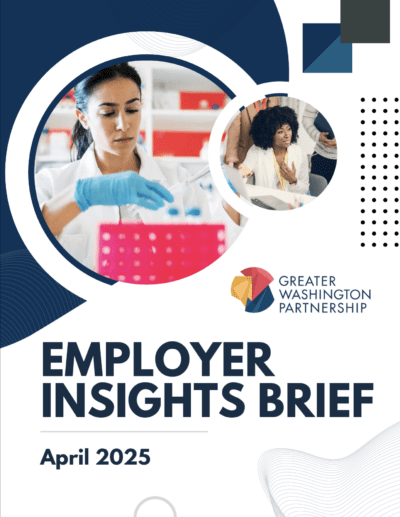Employer Insights Brief (2025)
Publish Date: April 2025

 Download Brief »
Download Brief »
This report combines data analysis and insights from employer interviews across industries to outline the current state of the regional labor market, identify barriers to talent pipeline development, and spotlight opportunities to collaborate on strengthening the region’s workforce development ecosystem.
In October 2022, the Partnership published the 2022 Employer Insights Brief to examine hiring trends and elevate talent practices making their mark on the region. Nearly three years later, the region has closed the chapter on a global pandemic, is responding to the current and long-term impacts of changes to the regional workforce, and is preparing for the continued evolution of the future of work spurred on by artificial intelligence and emerging technologies.
With these factors and more at play, the Partnership published the 2025 Employer Insights Brief. The Brief consists of an analysis of current regional labor market information and high-level themes from interviews with HR and talent leaders from Board and Leadership Council organizations, where they were asked about the changes they’ve seen over the last two years, including talent priorities, in-demand roles and skill sets, and how employers are developing talent within the region.
In conversations with our partner employers, four key trends surfaced:
The 2025 Employer Insights Brief closes with recommendations to stakeholders from across the workforce development ecosystem on ways to strengthen talent pipelines amidst a changing regional labor market.